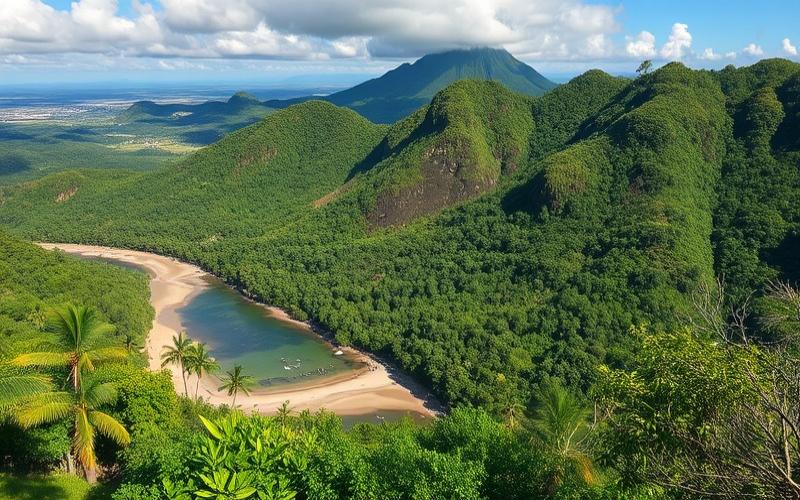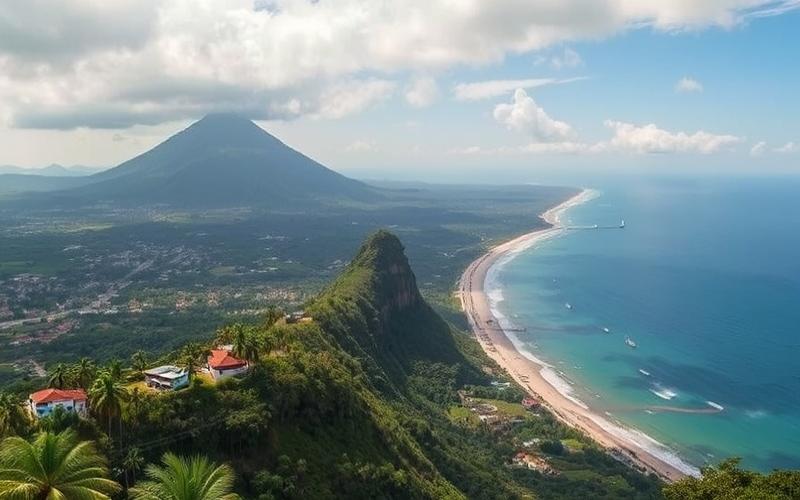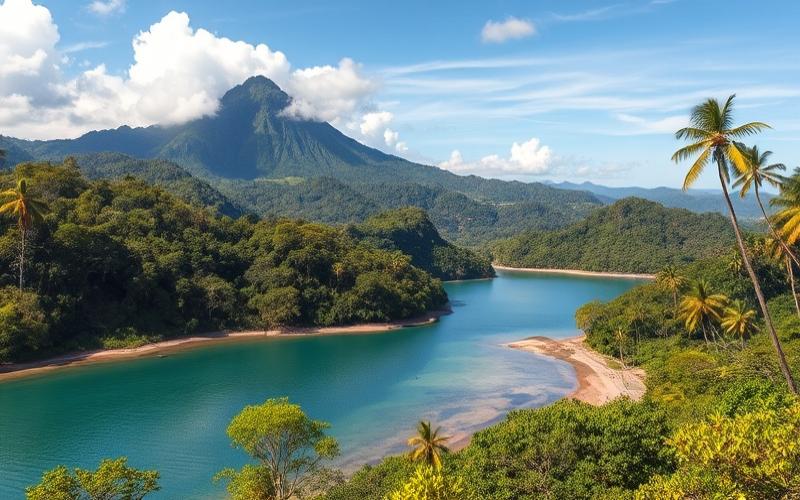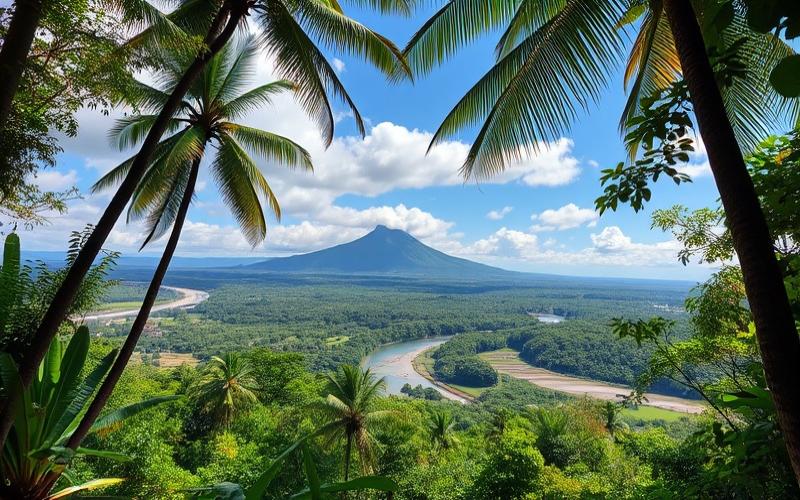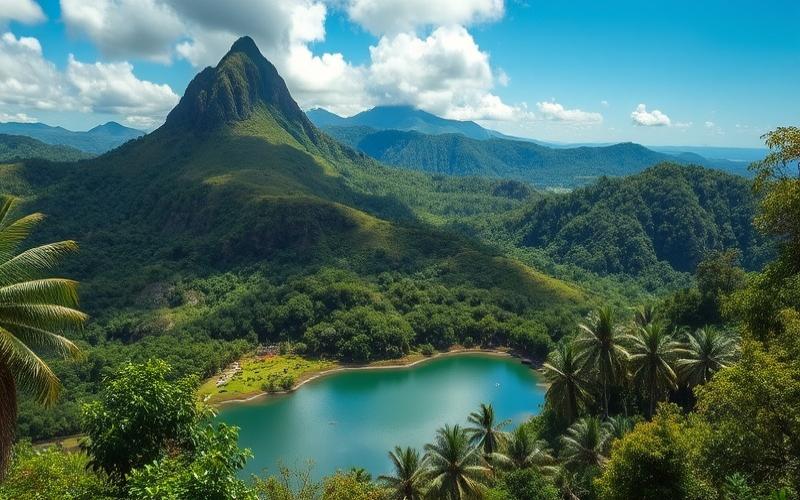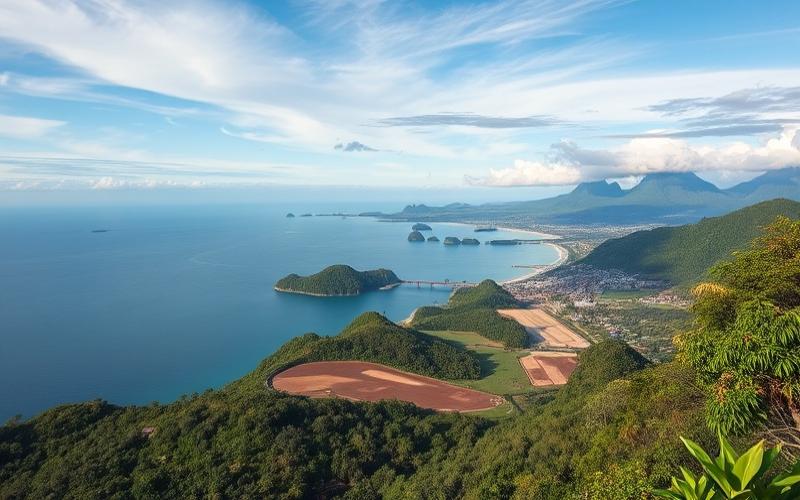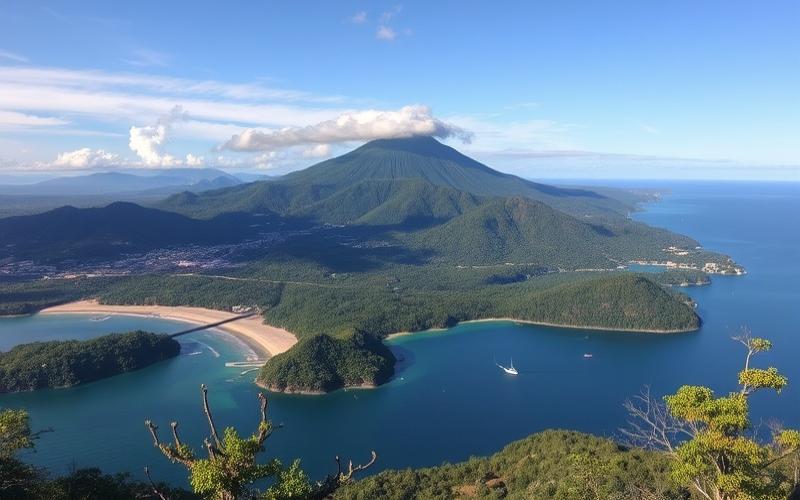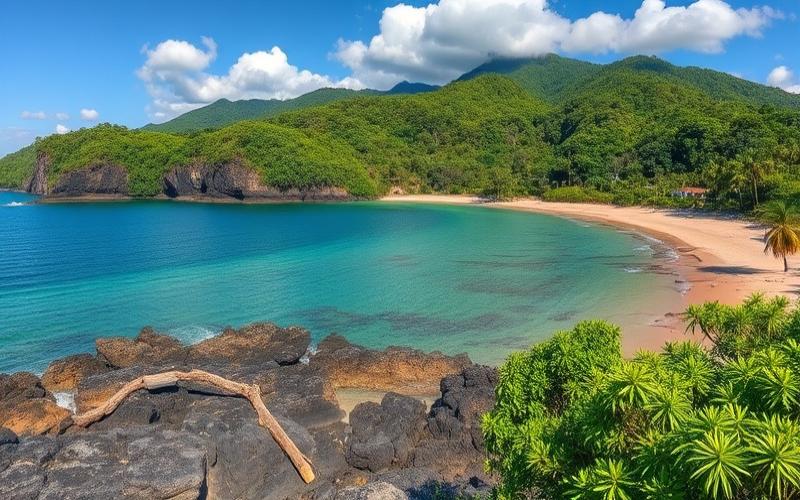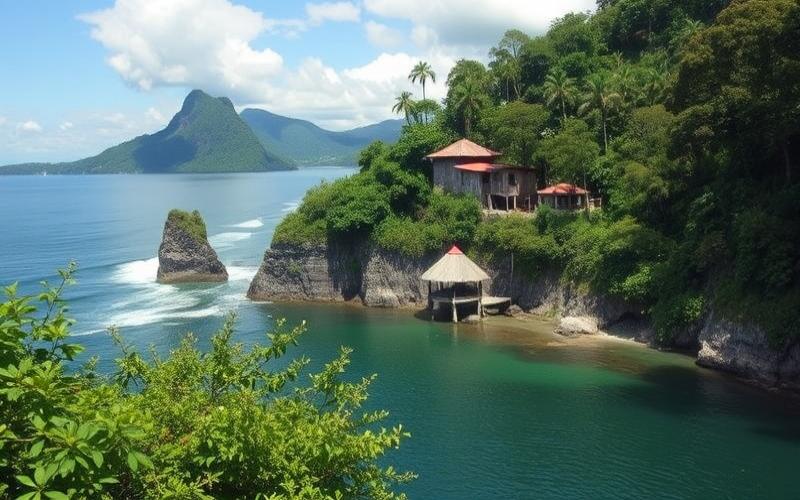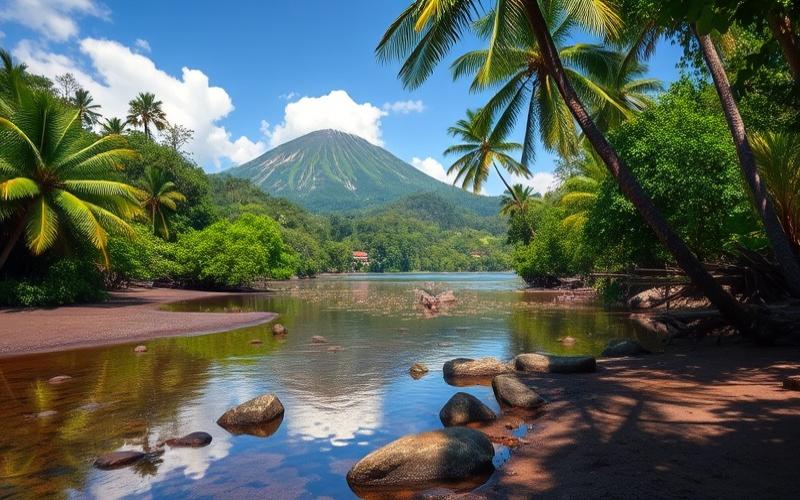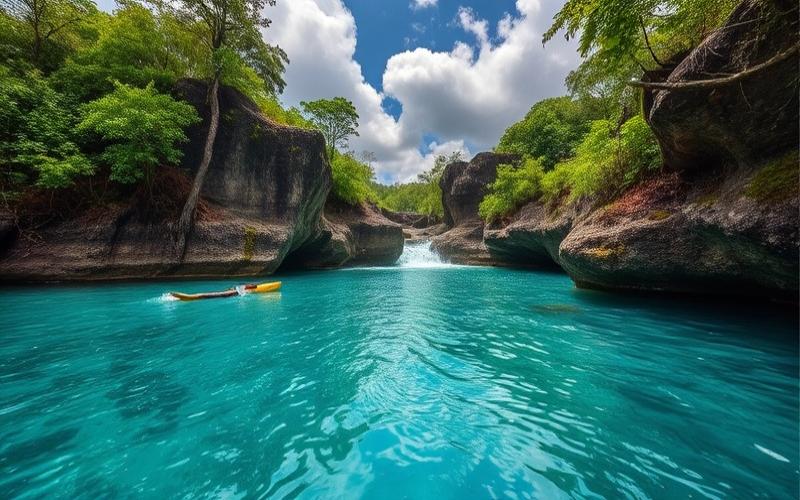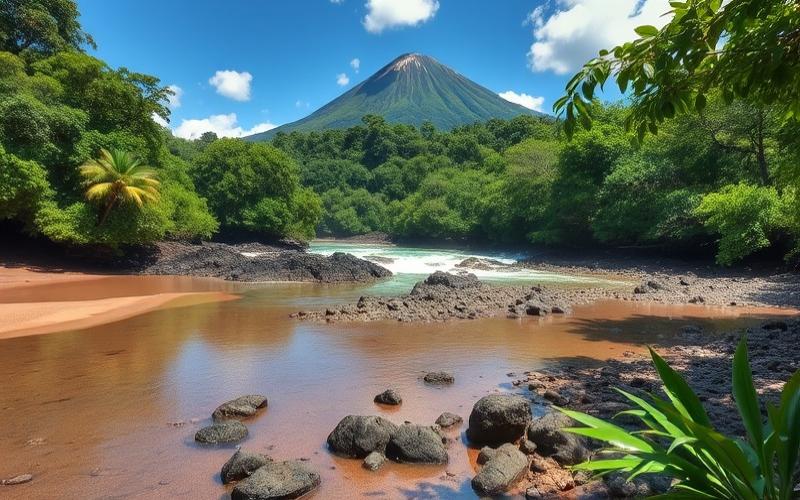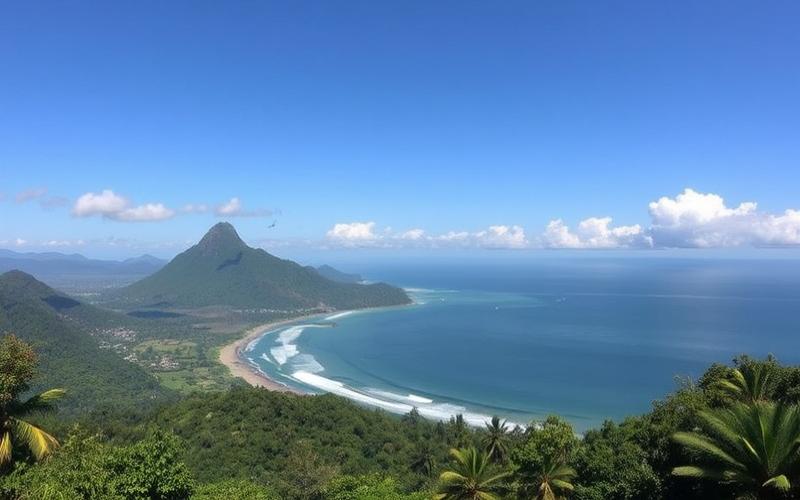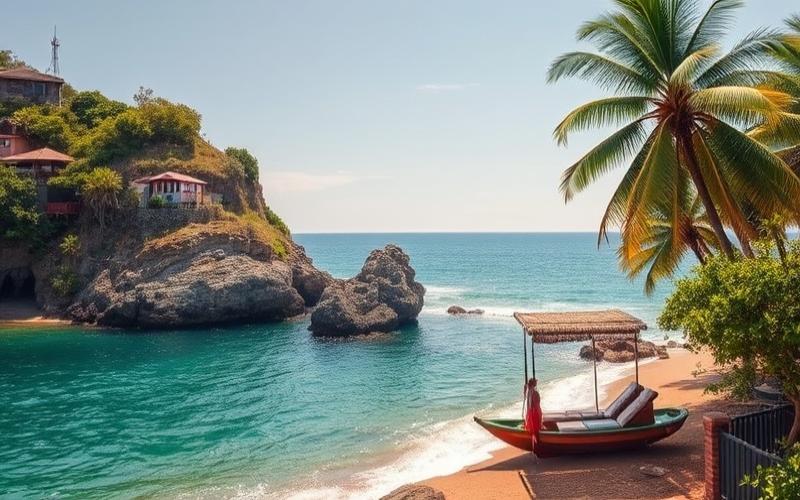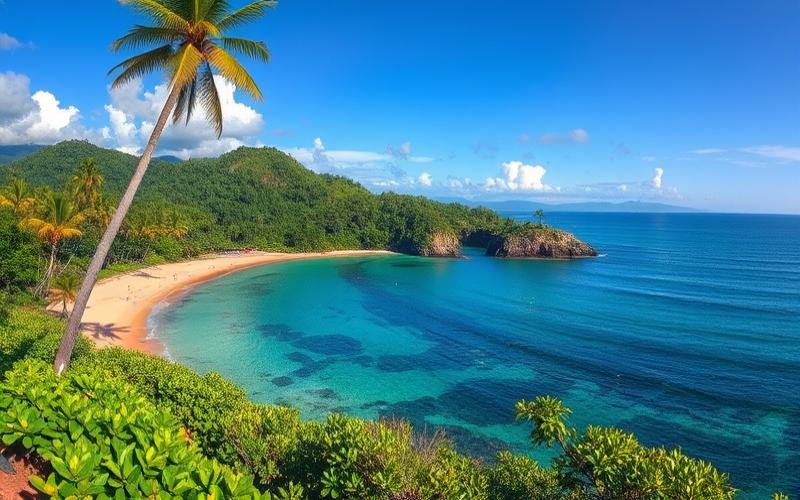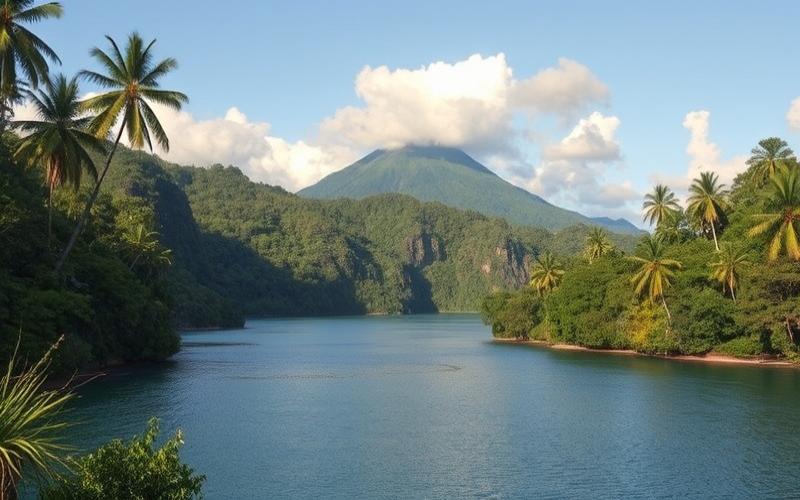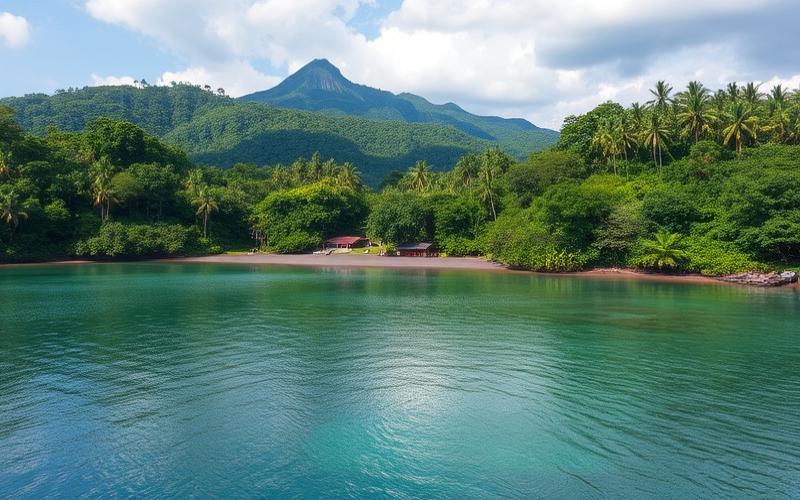
 Published on and written by Cyril Jarnias
Published on and written by Cyril Jarnias
Investing in Real Estate in Costa Rica
Investing in real estate in Costa Rica is an exciting and potentially lucrative adventure, but the success of this venture largely depends on skillful and well-informed negotiation. In a diverse and dynamic market, understanding local specifics, such as legal regulations and price dynamics, is essential to avoid pitfalls and maximize your advantages.
This article will reveal effective strategies and practical tips for successfully navigating these tropical waters, allowing you to purchase your dream property at the best price while ensuring a wise investment.
Good to Know:
Costa Rica is renowned for its political and economic stability, making it a preferred destination for international real estate investors.
Negotiating Successfully: Save on Your Real Estate Purchase in Costa Rica
Know Local Market Prices
- Gather recent data on similar transactions in the target area.
- Visit multiple properties to compare their condition, location, and listed price.
- Use this information to argue for a lower offer based on concrete references.
Conduct Thorough Preliminary Research
- Examine the property’s history: time on the market, previous price reductions, legal status (clear titles).
- Research the neighborhood: infrastructure projects, tourist appeal, or demographic changes.
Hire an Experienced Local Real Estate Agent
- Leverage their network to access unpublished listings and get an objective property evaluation.
- Benefit from their negotiation skills and precise knowledge of typical margins in Costa Rica.
| Advantage | Explanation |
|---|---|
| Privileged Access | Exclusive information through the local network |
| Simplified Negotiation | Expertise specific to Costa Rican practices |
| Legal Analysis | Rigorous verification of titles and official documents |
Strategies Adapted to the Costa Rican Market
Analyze Local Market Conditions
- Adjust your offer based on demand: a buyer’s market allows for bolder negotiation; conversely, a seller’s market requires more flexibility.
- Consider seasonality: certain periods (low tourist season) are more conducive to discounts.
Present a Justified Offer
Justify each proposal based on the property’s actual condition or observed trends in the relevant geographic area.
Avoid Excessively Low Offers
Do not offend the seller with a proposal too far from the asking price to maintain a constructive discussion atmosphere.
Identify Potential Flaws to Justify a Reduction
- Visible structural issues (moisture, cracks)
- Outdated electrical/plumbing installations
- Absence or deterioration of outdoor amenities
- Necessary repairs not completed
Use these elements as leverage during discussions:
“After a professional inspection, it appears that several repairs will be necessary. This justifies our request for an adjustment to the proposed price.”
Leverage Currency Fluctuations
Monitor the colon/dollar/euro exchange rate closely: negotiating when your currency is strong against the colón can optimize your real purchasing power.
| Currency Situation | Recommended Strategy |
|---|---|
| Strong Currency | Finalize quickly |
| Weak Currency | Negotiate postponement or staggered payment |
Patience and Perseverance: Keys to a Good Deal
- Accept that multiple negotiation rounds may be necessary
- Know how to wait after each counter-offer without rushing
- Keep several options open simultaneously to increase your chances
Patience often allows a pressured or weary seller to accept your final condition – sometimes saving you several thousand dollars.
By combining a fine analysis of the Costa Rican market, meticulous preparation, and strategies adapted to this specific context – while remaining patient – you maximize your chances of successfully acquiring real estate with a significant margin.
Good to Know:
To succeed in your negotiation when purchasing real estate in Costa Rica and optimize your savings, it is crucial to know local market prices based on thorough preliminary research; consulting recent comparable property listings will give you a definite advantage. Engaging the services of an experienced local real estate agent can be invaluable, as they possess a precise view of current market trends and conditions. During negotiations, consider the property’s potential flaws, which you can use as leverage to justify a price reduction. Leveraging local currency fluctuations can also work in your favor, ensuring you benefit from the most advantageous rates at the time of purchase. Finally, demonstrating patience and perseverance is essential; this can help you spot the perfect opportunity and achieve a more favorable and economically beneficial transaction.
Mastering the Market: Understanding Real Estate Trends in Costa Rica
Economic Factors Influencing the Costa Rican Real Estate Market:
- Sustained Economic Growth: Costa Rica’s economy continues to grow, driven by political stability, tourist appeal, and foreign investment.
- Favorable Government Policies: The country maintains a climate conducive to foreign investment with stable taxation and simplified procedures for non-residents purchasing real estate.
- Current Interest Rates: Although rates vary by banking institution, they remain attractive to stimulate local and international demand.
Key Market Drivers in 2025:
- Tax attractiveness for international investors
- Infrastructure development (roads, airports)
- Relative monetary stability
Recent Real Estate Price Trends (2023–2025):
| Region | Average Price (USD/m²) | Recent Trend |
|---|---|---|
| Nosara | 3,298 | Sharp Increase |
| Tamarindo | 2,725 | Marked Increase |
| Playas del Coco | 2,113 | Increase |
| National Average | 1,021 | Continuous Increase |
In the Central Valley (San José, Santa Ana):
- High average prices (≈$2,475/m²) with strong urban demand
- Variation between $1,555 and $4,579/m², depending on exact location
In Coastal Tourist Regions:
- More pronounced increase than in the center
- International demand strongly drives prices upward
Impact of Tourism and Expatriation on Demand:
The constant influx of tourists boosts seasonal rentals and the purchase of second homes.
Expatriates also seek both coastal villas and modern urban apartments.
Main observed effects:
- Rapid increase in some highly sought-after areas (Nosara, Tamarindo)
- Stabilization or slight increase in areas less exposed to international tourism or with high local population
Local Regulations Regarding Purchase by Foreigners:
List of key regulatory aspects:
- No major restrictions on direct acquisition in one’s own name or through a Costa Rican company (except properties located in the maritime zone)
- Maritime-Terrestrial Zone (200 meters from the shore): purchase possible only through a concession granted by the state; requires legal residency if foreign majority participation
- Equal rights to nationals outside the maritime zone
Practical advice:
It is highly recommended to hire a local specialized lawyer during the purchase process.
Reliable Resources for Updated Data & Expert Support:
Recommended list:
- International specialized agencies operating locally
- Local real estate chambers like CCCBR (Cámara Costarricense de Corredores de Bienes Raíces)
- Law firms specialized in Costa Rican real estate law
- Recognized platforms regularly publishing regional analyses & indices
Practical Tips for Analyzing These Trends to Optimize Your Negotiation:
- Study the average price per square meter in each target micro-market carefully before making any offer.
- Consider not only national but especially regional/local trends – major variations exist between beach and urban center.
- Inquire about any public/private projects likely to impact future value (road infrastructure, opening of new school/university…).
- Seek multiple opinions from accredited agents – systematically compare independent reports & estimates.
- Examine all constraints related to the desired property (especially maritime-terrestrial zone).
- Rely on recent official data rather than mere market “impressions”; prioritize comparative tables during negotiations.
By following these structured recommendations based on reliable and regionally contextualized sources, it becomes much easier to anticipate future developments while securing your interests in a real estate purchase in Costa Rica.
Good to Know:
In Costa Rica, the real estate market is influenced by various economic factors, including a relatively stable growth rate and government policies aimed at attracting foreign investment, notably through tax incentives. Current interest rates, which remain competitive, directly impact real estate financing accessibility. Property prices vary significantly, with a constant rise in coastal tourist areas due to high demand linked to tourism and expatriation, compared to a more moderate increase in the Central Valley. Foreigners can purchase properties without major restrictions, although consulting local real estate law experts is advised to navigate the regulations. For effective negotiations, it is crucial to analyze the market using updated data from reliable sources such as reputable local real estate agencies or economic reports, allowing you to leverage current trends to maximize investment opportunities.
Common Pitfalls to Avoid When Negotiating a Real Estate Purchase
Frequent Mistakes When Negotiating a Property in Costa Rica and Practical Tips to Avoid Them
| Frequent Mistake | Concrete Example | Practical Tip |
| Lack of Preliminary Research on the Local Market | A foreign buyer relied solely on photos and the seller’s description for a seaside house. After purchase, they discover the area is prone to erosion and unreported environmental risks. | Conduct an in-depth market study and compare several similar properties in the target region. Meet locals and expatriates for firsthand feedback. |
| Lack of Understanding of Legal Specifics | An investor did not verify if the property was registered with the Registro Nacional. They later learn the property has an undisclosed mortgage. | Always have property titles, permits, and legal history verified by a specialized lawyer. Request a comprehensive review from the Registro Nacional. |
| Neglecting to Surround Yourself with Local Experts (Lawyer, Certified Real Estate Agent) | A buyer was advised by a foreign agent unfamiliar with Costa Rican laws. They ended up with a property built in a protected area, making any renovation impossible. | Choose local experts: specialized lawyer, Costa Rican public notary, real estate agent who speaks Spanish and knows local legislation. |
| Giving in to Pressure for a Quick Decision | A seller insists on urgent purchase due to high demand. The buyer signs without thorough inspection and later discovers major hidden defects. | Take time to review every document and condition. Refuse any rush and demand deadlines for your verifications. |
| Neglecting to Clarify All Sale Conditions | A purchase agreement signed without mention of additional fees (taxes, notary fees, etc.) leads to unexpected costs at the final transaction. | Have all conditions specified in writing (price, deadlines, taxes, repairs, included furniture, etc.). Request an official translation if needed. |
Other Common Mistakes:
- Omitting a complete technical and environmental inspection (foundations, seismic compliance, permits, etc.).
- Failing to verify actual buildability, especially in highly regulated coastal or mountain areas.
- Ignoring specific regulations for foreigners or maritime zones (concessions, limitations, etc.).
Essential Tips to Secure Your Purchase:
- Demand an independent and detailed inspection report before closing.
- Include contingency clauses in the purchase offer (in case of non-compliance or legal issues).
- Consult a bilingual lawyer, preferably a public notary, to validate all legal aspects.
- Verify your real estate agent’s reputation and ensure they are certified in Costa Rica.
- Budget for all additional fees: taxes, notary, transfer duties.
Key Takeaway:
Never give in to pressure for a quick decision and surrounding yourself with local experts are the guarantees of a secure real estate purchase in Costa Rica. Transparency at every step and clarifying contractual conditions help avoid unpleasant surprises.
Good to Know:
When negotiating a real estate purchase in Costa Rica, it is crucial to avoid neglecting thorough research on the local market. For example, novice buyers often forget to compare prices of similar properties, which can lead to overpaying. Another pitfall is unfamiliarity with the country’s legal specifics; it is essential to understand local laws regarding property rights and engage a specialized lawyer to avoid legal complications. Do not underestimate the value of local experts, such as a lawyer or real estate agent, to navigate a foreign market. Finally, resist the pressure to close quickly; take time to clarify every sale condition to avoid unpleasant surprises, such as hidden fees or ambiguous clauses.
Disclaimer: The information provided on this website is for informational purposes only and does not constitute financial, legal, or professional advice. We encourage you to consult qualified experts before making any investment, real estate, or expatriation decisions. Although we strive to maintain up-to-date and accurate information, we do not guarantee the completeness, accuracy, or timeliness of the proposed content. As investment and expatriation involve risks, we disclaim any liability for potential losses or damages arising from the use of this site. Your use of this site confirms your acceptance of these terms and your understanding of the associated risks.

